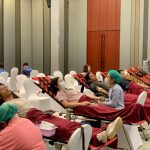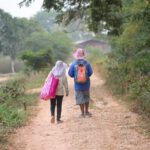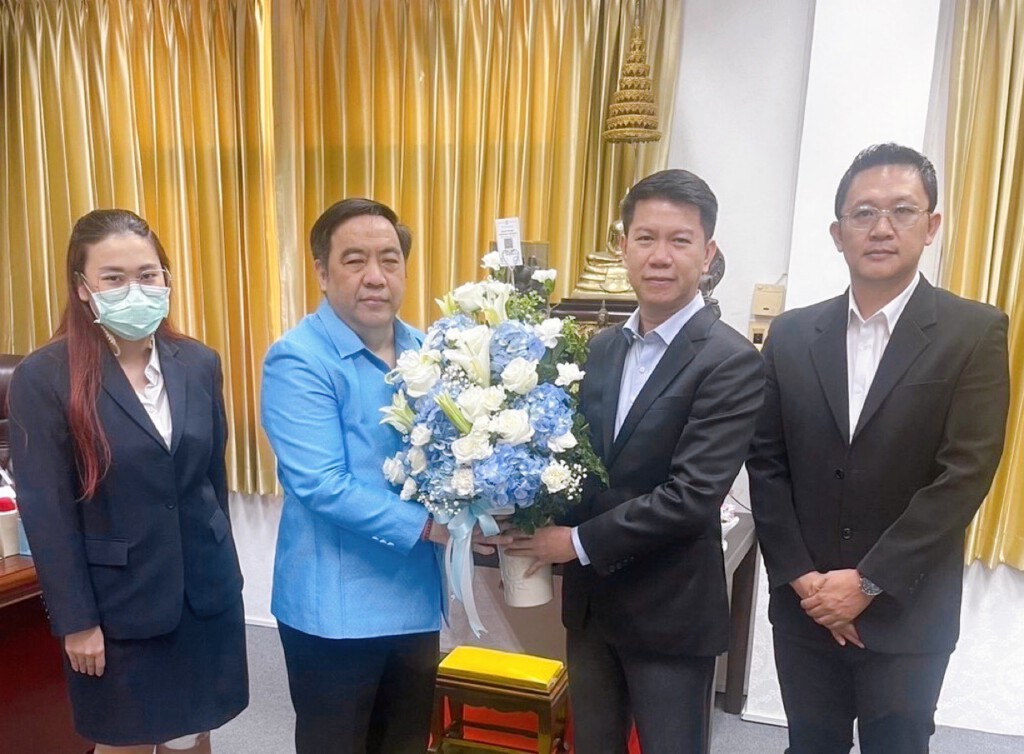A new report from World Vision shows how migration in the context of climate change is profoundly affecting the lives of children in Southeast Asia, drawing on 92 first-hand accounts from child migrants, children who stayed behind when parents migrated, parents and older caregivers, as well as interviews with local leaders and experts.
The report, produced in partnership with the Stockholm Environment Institute (SEI) Asia Centre, vividly depicts the deepening poverty, deprivation and debt burdens in rural communities that lead people to migrate in distress; the exploitation and abuse faced by many migrants; and the struggles of those who remain home, even when they receive remittances. Children, especially older girls, routinely take on significant duties at home and on farms, and many also engage in wage labour, even at the expense of their education. Adults and children alike described profound emotional impacts from family separation, and many children described traumatic experiences during migration.
The UN estimates that as of 2020, there were 10.6 million international migrants in Southeast Asia, with Thailand hosting by far the largest numbers; about 1.27 million were under 18 years old. As climate change impacts intensify, driving more people to migrate, it is crucial that their rights and interests be protected – especially those of children, who are highly vulnerable.
Through up-close looks at six rural villages in Cambodia, Lao PDR and Viet Nam, the report shows how a changing climate, including increasingly frequent torrential rains and floods, translates into hunger, missed school and anxiety over mounting debts. It shows the sacrifices that parents make, children’s own sense of duty to their family, and their aspirations for a better life. And it highlights many ways in which national governments, donors and development partners, and international organisations can make a difference.
The report provides detailed recommendations focused on five objectives:
Enhance community resilience through robust infrastructure and disaster preparedness;
Provide flexible and fair support for sustainable livelihoods;
Protect both parents and children who migrate;
Care for caregivers – and the children who stay with them; and
Empower children and youth to be able to build a better future for themselves.
The observations of the report, “Climate change, vulnerability and migration: Impacts on children and youth in Southeast Asia”, were shared at a launch event in Bangkok that was attended by representatives of several UN organizations (IOM, UNICEF, ASEAN ACWC UNEP, OHCHR, WFP) along with humanitarian experts, leaders, business experts, academics and media professionals.
A panel of experts from the humanitarian sector, and a World Vision youth representative from Cambodia, reflected on issues raised in the report, such as migration patterns connected to gendered perceptions of “duty”, the impact of parental migration on children remaining behind, and impacts of child migration on the education, health, development and overall well-being of children.
“This research reveals a heart-breaking reality: climate change and migration are reshaping the lives of countless vulnerable children, many of whom are left to navigate the emotional and physical tolls of separation and instability. It is critical that we address the root causes of this distress and ensure that children are at the centre of efforts to create a safer, more secure future,” said Dr. Sara Vigil, Senior Research Fellow and Global Lead of SEI’s Migration and Mobility programme.
As the climate crisis worsens, children and youth in Southeast Asia face mounting threats to their health, education, livelihoods and economic prospects. Climate change impacts, compounded in some cases by infrastructure development such as dam construction, are deepening poverty and inequality and making people ever more vulnerable to distress migration and potentially exposing themselves to exploitation and abuse.
“The physical, emotional and mental toll that migration has on girls and boys exacerbates their vulnerabilities. The challenges they face, compounded by climate-related migration, has gone unnoticed for far too long, but it cannot be ignored anymore. Urgent steps need to be taken to address the root causes of climate-related migration and protect the future of these young lives. The results of the report will inform our work in East Asia, as we are committed to supporting safe, orderly and dignified migration that upholds the rights, well-being and opportunities of migrants, particularly vulnerable groups such as girls and boys,” said Terry Ferrari, Regional Leader, East Asia, World Vision International.
For more information, please visit World Vision Thailand’s :
FB : https://www.facebook.com/worldvisionthailand
IG : https://www.instagram.com/worldvision_thailand
Youtube : https://www.youtube.com/@worldvisionthailand-wvft
X : https://twitter.com/WorldVisionTH
Hi-Like
ชื่อ-นามสกุล : ืFullName : Hi-Like










